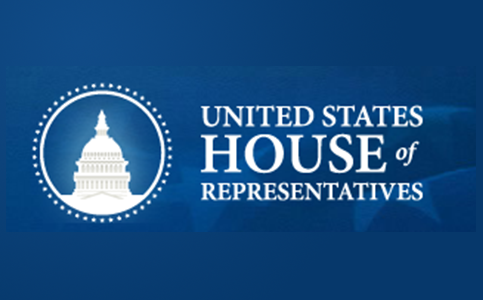
Each biennium NCACC solicits proposals from counties to develop legislative goals that all 100 counties can support. NCACC’s legislative goals process is designed to reflect the collective will of our members and helps counties speak to state and federal policymakers with a unified voice. State and federal goals are developed along two similar, but separate tracks, and set the Association’s priorities for legislative action at the North Carolina General Assembly and in the United States Congress. Goals on federal issues may call for changes to federal statues, changes to federal programs or agency priorities, or involve federal budget and appropriations requests, or a Congressionally mandated study. NCACC’s federal goals may also complement NCACC’s state goals, guiding principles, or support the current NCACC Presidential Initiative.
Federal Legislative Goals
NCACC 2023-2024 Federal Legislative Goals
- Support additional flexibility and an extension in the deadline for spending American Rescue Plan (ARP) State and Local Fiscal Recovery Funds (SLFRF).
- Support efforts to promote food system resiliency, such as ways to strengthen North Carolina’s Food System and increase access to affordable, healthy food options.
- Support increased funding for disaster preparation, assistance and mitigation; legislation or policy changes that expedite and expand county use of federal disaster assistance funds; legislation or policy changes to streamline and expedite the FEMA individual assistance process; and legislation to review and update flood maps more frequently in counties experiencing high rates of population growth and counties prone to flooding.
- Support funding for behavioral health programs and services to address the opioid and substance abuse epidemic and support flexibility for counties to use funds for prevention and recovery.
- Support funding and legislation to expand high-speed broadband access.
- Support measures to reduce the number of people with mental illness in county jails and legislation that would allow individuals in custody to continue receiving Medicaid and other federal health benefits until they are convicted, sentenced, and incarcerated.
- Support funds for health, human and economic services programs including Temporary Assistance for Needy Families, Food and Nutrition Services and federal block grants.
- Support increased funding and flexibility in services for older Americans and veterans.
- Support additional funding for Payment in Lieu of Taxes (PILT), agricultural, conservation, workforce, economic development, and Infrastructure programs that help counties meet public needs.
- Support strong regulations and enforcement along with funding assistance or reimbursement to state and local governments when a federal agency, such as the EPA, regulates emerging contaminants and other discharges into drinking water sources.
- Oppose unfunded mandates and changes in eligibility for federal programs that shift costs to counties.
- Reauthorize the Workforce Innovation and Opportunity Act (WIOA) and increase funding for Title I programs.
NCACC’s Federal Goals Development Process
- Before each legislative biennium, NCACC invites counties to submit federal legislative goal proposals. NCACC staff, in conjunction with NCACC’s federal relations consultant Leslie Mozingo of Strategics Consulting, vet and transmit eligible federal goals to the NCACC Board of Directors for consideration and possible modification.
- Upon approval by the NCACC Board of Directors, the federal goals package is presented to voting delegates at the NCACC Legislative Goals Conference for consideration.
- Once approved at the NCACC Legislative Goals Conference, the adopted federal goals guide advocacy outreach to members of U.S. Congress, including members of North Carolina’s Congressional Delegation and other federal partners. Federal goals also support NCACC members with their involvement in the National Association of Counties (NACo).
Federal Advocacy
The NCACC encourages members to contact the local offices of members of North Carolina’s federal congressional delegation to request meetings and develop positive relations with Members and staff. When Congress is not in session, members often travel home to North Carolina to meet with constituents. Typically, the month of August is an ideal time for advocacy. NCACC also urges members to schedule meetings with Congressional offices in Washington, D.C. in conjunction with NACo’s Legislative Conference, held each spring.
There is specific protocol for scheduling meetings with federal legislators and staff. The NCACC has compiled briefing materials and advocacy tips to help commissioners prepare for these meetings. Click on the links to download a copy of our comprehensive federal issues packet with detailed information on each goal, or a 1-pager (front and back) with a summary of each goal.
In addition to regular advocacy activities, NCACC may call for specific action when county priorities are being considered by Congress. At certain times, NCACC will send Commissioners a “Legislative Alert” email which includes talking points and advocacy guidance for issues requiring urgent action.
NCACC Federal Grant Funding Webinar
Nearly all 100 counties in North Carolina are members of the National Association of Counties (NACo) – a national organization, founded in 1935 to strengthen America’s counties. NACo serves nearly 40,000 county elected officials and 3.6 million county employees. Among other things, NACo advocates for county priorities in federal policymaking, promotes exemplary county policies and practices, and supports leadership skills and cost savings for counties.
The North Carolina Association of County Commissioners (NCACC) is one of the strongest state associations within NACo and facilitates member participation in NACo activities. Each year, NCACC hosts events in conjunction with NACo’s Legislative and Annual Conferences to enhance the conference experience and prepare North Carolina commissioners who attend. NCACC also assists North Carolina commissioners, who are interested in learning more about leadership positions in NACo.
North Carolina typically has several seats on the NACo Board of Directors due to strong North Carolina membership in NACo.
Resources on Federal Issues

NC Congressional Info
- North Carolina Congressional Delegation – Contact List and committee assignments for North Carolina’s members of the 118th Congress.
- Congressional Calendar

Congress.Gov
Congress.Gov – the official website for U.S. federal legislative information. The site provides access to accurate, timely, and complete legislative information for Members of Congress, legislative agencies, and the public. It links to a legislative tracking tool, the Congressional Record, Congressional committees, and calendars for various legislative activities. Congress.gov supersedes the THOMAS system, which was retired on July 5, 2016.

Congressional Research Service (CRS)
Congressional Research Service (CRS) – a federal legislative branch agency located within the Library of Congress and serves as shared staff to congressional committees and members of Congress to provide comprehensive analysis on a wide range of public policy issues within five main research divisions. Staffed by hundreds of subject matter experts, CRS produces reports on major policy issues, some of which are publicly accessible here. CRS products may be updated to reflect new information, developments, and emergent needs of Congress.

White House
Click here to sign up for briefing invites, press releases, statements, and newsletters from the White House Intergovernmental Affairs Office.
Contacts
The Association partners with federal advisor Leslie Mozingo, CEO and Owner of Strategics Consulting, to develop federal advocacy materials. If you have any questions, please contact NCACC Director of Government Relations Amber Harris at [email protected] or Leslie Mozingo at [email protected].


